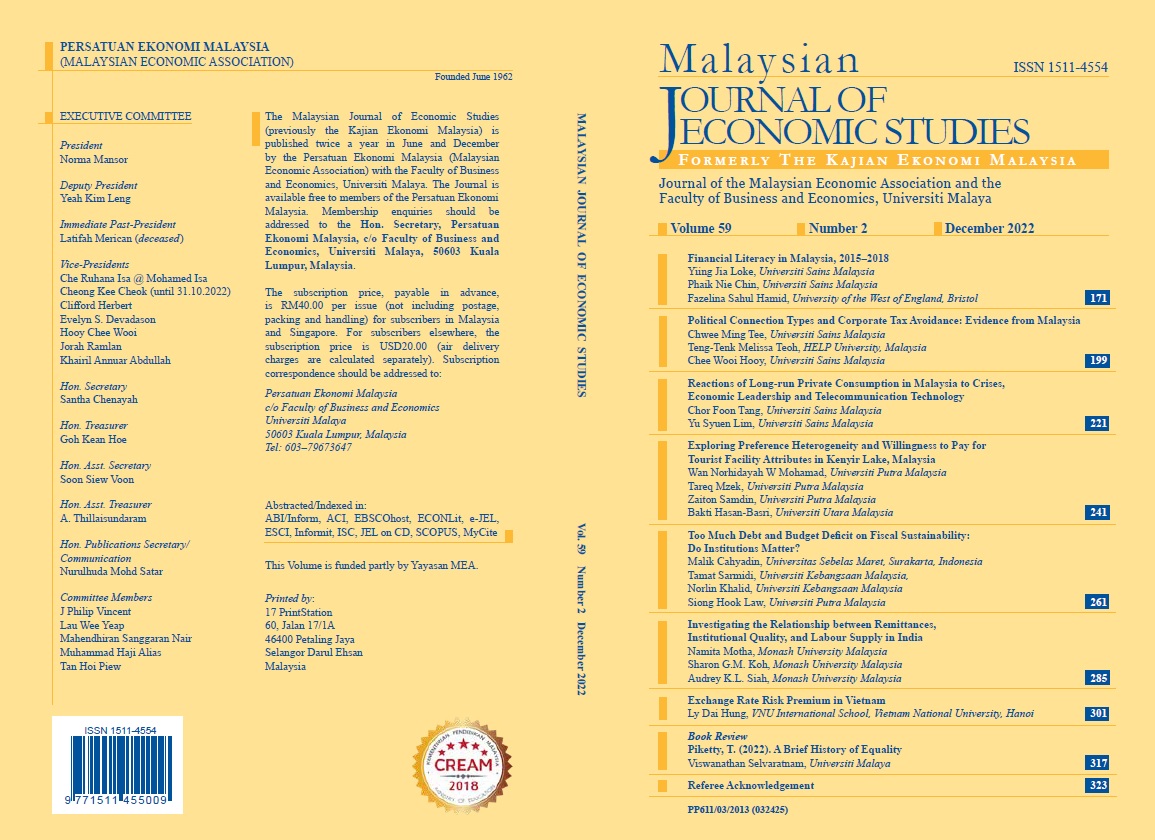Too Much Debt and Budget Deficit on Fiscal Sustainability: Do Institutions Matter?
DOI:
https://doi.org/10.22452/MJES.vol59no2.5Keywords:
Fiscal sustainability indicator, public debt, budget deficit, institutions, dynamic panel thresholdAbstract
The current study estimates threshold levels of the public debt-to-gross domestic product (GDP) ratio and the budget deficit for 106 developing and 36 developed countries from 1996 to 2018. A PCA-based fiscal sustainability indicator is also constructed and a dynamic panel threshold regression is employed. The main findings reveal a threshold effect in the public debt-to-GDP ratio and budget deficit fiscal sustainability nexus. The public debt-to-GDP ratio and budget deficit are beneficial in maintaining fiscal sustainability at lower or upper threshold levels in different institutional indicators. The highest threshold level of the public debt-to-GDP ratio was 59.56% for developed countries and 64.87% for developing countries. The highest threshold level of budget deficit-to-GDP ratio was 0.41% for developed countries and 3.34% for developing countries. Three institutional indicators contribute significantly to the threshold estimation: regulatory quality, the rule of law and control of corruption. Policymakers are advised to maintain certain threshold points to ensure a fiscally sustainable level. The quality of law enforcement and control of corruption should also be improved.

